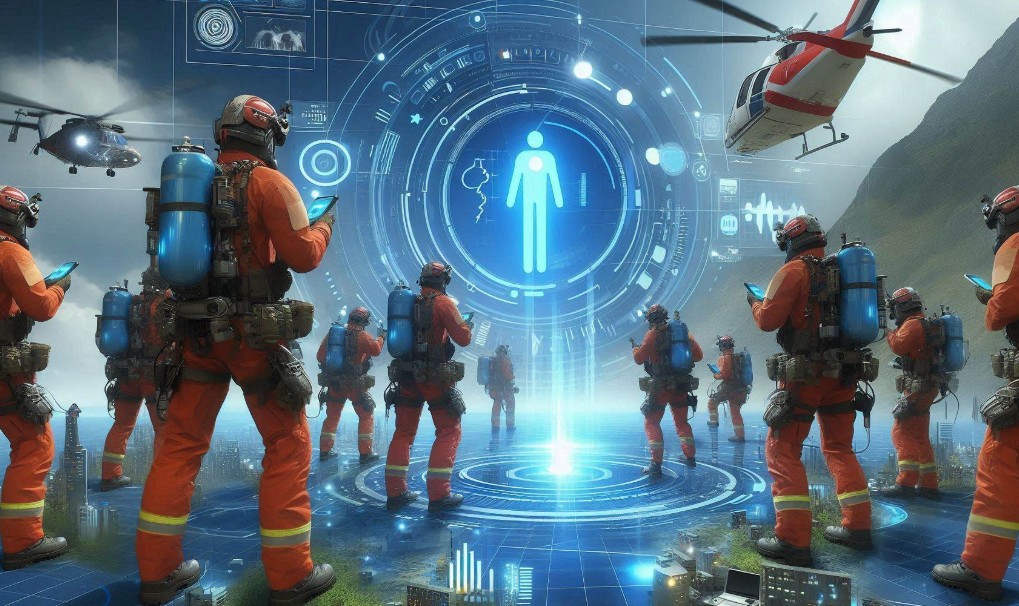In recent years, there has been a significant advancement in the field of Artificial Intelligence (AI) and Augmented Reality (AR). These technologies have become increasingly popular and have the potential to enhance virtual experiences in various fields such as gaming, education, healthcare, and...
AI System Assists Rescuers in Search and Rescue Operations

In recent years, advancements in artificial intelligence have begun to transform the way emergency teams approach critical situations. With the ability to analyze vast amounts of data in real time, AI plays a crucial role in supporting quick decision-making during life-threatening events. Its integration into high-stakes scenarios enhances the overall efficiency and effectiveness of teams, making the difference between life and death in many cases.
The application of AI in urgent situations allows for improved predictions, faster identification of hazards, and more precise coordination of available resources. This innovative technology helps streamline complex processes, reducing the time it takes to locate individuals in distress and ultimately improving outcomes. AI’s potential continues to grow, offering new possibilities for tackling some of the most challenging and unpredictable environments.
How AI Enhances Rescue Efficiency
The integration of artificial intelligence into emergency response has significantly improved the speed and precision of life-saving efforts. By leveraging powerful algorithms, AI helps analyze complex data quickly, identifying key information that human teams may overlook. This results in better coordination, resource management, and faster identification of critical areas needing attention.
Faster Decision-Making
AI accelerates decision-making by providing real-time insights based on vast amounts of data. Through machine learning models, it can predict the most likely locations of individuals in danger, prioritize tasks, and suggest optimal strategies. This reduces response time and enhances the overall effectiveness of emergency teams, allowing them to act swiftly in high-pressure situations.
Improved Resource Allocation
Efficient use of available resources is crucial during intense crises. AI helps optimize the deployment of personnel, equipment, and technology by analyzing various factors, such as terrain, weather conditions, and available manpower. This intelligent allocation ensures that the right resources reach the right locations, minimizing delays and maximizing the impact of each intervention.

AI Technologies Used in Emergency Operations
Artificial intelligence is becoming a vital component in enhancing the effectiveness of emergency response efforts. By processing large amounts of data in real-time, AI technologies offer valuable insights that help teams make informed decisions quickly. From predictive analytics to autonomous devices, AI tools are transforming the way emergency teams approach critical situations, ensuring quicker, more efficient outcomes.
Predictive Analytics for Faster Responses
AI-powered predictive analytics plays a key role in understanding potential threats and risks before they escalate. By analyzing historical data and real-time inputs, AI algorithms can forecast dangerous situations and identify patterns that indicate when and where help will be needed most. This predictive ability allows for better preparedness, enabling emergency teams to act proactively and avoid delays.
Autonomous Drones and Robots
Autonomous drones and robots equipped with AI are revolutionizing the way areas are surveyed during emergencies. These devices can navigate difficult terrains, gather real-time data, and provide live video feeds to emergency teams on the ground. They enhance situational awareness and reduce human exposure to dangerous environments, allowing for safer, more effective interventions.
The Future of AI in Disaster Management
As technology continues to evolve, the role of artificial intelligence in managing catastrophic events is set to expand. Future advancements in AI will allow for even more precise predictions, enhanced communication, and faster response times. The increasing sophistication of AI tools promises to revolutionize how teams handle crises, improving not only speed but also the quality of decision-making under pressure.
In the coming years, AI is expected to play a central role in automating many aspects of emergency coordination. From AI-driven simulations that train teams for different disaster scenarios to autonomous systems capable of responding without human intervention, these innovations will help save lives and reduce the impact of disasters. As AI technology progresses, its ability to support real-time data analysis, resource allocation, and risk management will continue to improve, reshaping the future of emergency response.



